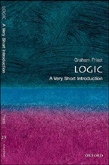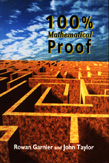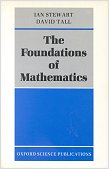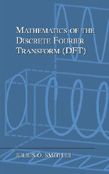|
Links
Please let me know if you find a dead link!
Vision____Maths____Computing____Websites____Free libraries____Free software____Digital audio
Vision
| Resources |
|
|
Viperlib |
This is a library of images and demos about vision. Donate enough images, and you'll get a free Barry the Snake T-shirt. |
|
|
face-rec.org |
A website about face recognition, including a big list of face image databases. |
|
|
Akiyoshi Kitakoa's amazing anomalous motion illusions |
... including the famous rotating snakes illusion. |
|
|
Beau Lotto's lab |
There are some fantastic illusions here. |
|
|
Treatise on Physiological Optics |
You can download scans of Helmholtz's Treatise on Physiological Optics from this website. If you have a spare gigabyte of space on your hard-drive, there's a very high quality pdf version. Alternatively, there's a lower-quality, but fully-searchable, DjVu version that takes up an incredibly small 33 MB.
|
| Vision labs |
|
|
Dave Perrett's lab |
I worked here a long, long time ago. |
|
|
Mark Georgeson's home page |
Mark supervised my PhD. |
|
|
Li Zhaoping's lab |
This is where I did my first postdoc, and also where I currently work. |
|
|
McGill Vision Research Lab |
This is where I did my second postdoc. |
|
|
Vision Science Group, Bradford University |
I spent two years here, working with William McIlhagga. |
Maths
| Resources |
|
|
Eric Weisstein's Mathworld |
A comprehensive encyclopedia of mathematics which is improving and expanding all the time. This website was shut down for a year because of legal action by the CRC Press. Eric Weisstein approached CRC to publish a book containing a snapshot of the website, and they duped him into signing a contract that gave them exclusive rights to the entire website. Subsequently, they obtained an injunction forcing him to shut it down. The website is now online again, but Wolfram Research (Weisstein's employers, who host the site) have to pay CRC Press if sales of the book fall below projected targets. Additionally, CRC press have the right to publish copies of the website at any point in the future, even though they have no involvement in its development. A boycott of CRC by the mathematical community makes this unlikely to happen, though.
|
|
|
Ask Dr. Math |
A maths question and answer service. You can search the archives for previous questions that have been answered, or ask your own question. |
|
|
Online publications of Julius Orion Smith |
Julius Orion Smith is at the Center for Computer Research in Music and Acoustics at Stanford. He's written several books on signal processing.
|
|
|
BJMath.com |
A website about the mathematics of gambling, including a number of downloadable books and papers. |
| Recommended books |
|
|
 |
Logic - A Very Short Introduction by
Graham Priest
This is a great introduction to logic – well worth reading before you look at anything else on the subject. It doesn’t go into a lot of technical detail, making it easier to understand than most books on logic. However, it tackles head-on many philosophical difficulties that even quite advanced books tend to brush under the carpet.
|
|
|
 |
100% Mathematical Proof by Rowan Garnier &
John Taylor
This is a brilliant book on mathematical logic and proof. Most books on logic are very specialized, and focus on detailed formal proofs of arcane theorems that are far removed from the kind of semi-formal proofs that mathematicians actually write. This book gives a very clear explanation of the relationship between formal logic and the proofs found in normal mathematics. Tragically, this wonderful book didn't sell well, and it is now out of print. Its rarity makes it difficult (and expensive) to find secondhand – I've seen it for prices between £25 and £100. I contacted one of the authors, John Taylor, and he said that he gets around one enquiry a year about the book, but not enough to interest a publisher. So, if you want to see this book in print again, get in touch with him.
|
|
|

|
The Foundations of Mathematics
by Ian Stewart & David Tall
This book starts off with the maths you did at school, and gradually introduces the more formal approach used by professional mathematicians. First, it describes the basic concepts of sets, relations, and functions. Then it describes the formal construction of the natural numbers, integers, rational numbers, real numbers, complex numbers and quarternians. It ends with a chapter on infinite numbers. The last few chapters are challenging, but there's no other book that gives such an accessible introduction to the foundations of mathematics.
|
|
|
 |
Mathematics of the Discrete Fourier Transform (DFT)
by Julius Orion Smith
This explains the DFT pretty much from first principles, including an incredibly clear explanation of complex numbers and Euler's formula, eiθ = cosθ + isinθ. If you want to really understand the DFT, as well as know how to use it, this is the book to read. I found it much easier to understand and more useful than books on the continuous Fourier transform (e.g.
Bracewell): firstly, you don't need much calculus to derive the DFT; secondly, if you ever Fourier-transform anything on a computer, you'll be doing the DFT, so that's what you need to know about anyway. You can read the book online here.
|
Computing links
|
|
Writing HTML |
This great HTML tutorial taught me nearly everything I needed to know to be able to set up this website. |
Websites
|
|
The Daily Mash |
Spoof news |
| Science blogs |
| Science and health stories in the media are generally written by journalists who have no understanding of science, or what it means for an assertion to be supported by evidence. In addition, many journalists are expected to churn out five or six articles a day, so they wouldn't have the time to check the facts, even if they had the expertise. Because of this, any science-related story in the media is quite likely to be either partly or wholly incorrect. The sad state of science reporting in the UK is summed up by this astonishing quote from Jeremy Laurance, health editor of The Independent: "reporters are messengers – their job is to tell, as accurately as they can, what has been said, with the benefit of such insight as their experience allows them to bring, not to second guess whether what is said is right." In general, blogs are a far more reliable source of science-related information than the official news media. Here's a selection of the best ones. |
|
|
Bad Science |
The online version of Ben Goldacre's Guardian column. Each week he takes a piece of pseudoscience that's been floating around in the media, and picks it apart. It's a real pleasure to read, partly because of his total lack of mercy towards the hapless idiots that he targets, and partly because of its educational value. For example, here's an article on the Sally Clark SIDS case, explaining that the key statistical error that the expert witness made was not what everybody thought it was, but was something altogether more subtle... so subtle in fact, that it was totally overlooked by the judge, the defense lawyers, and pretty much everyone who reported or commented on the case. Another superb article is his scathing attack on the media for spreading the view that MMR causes autism. Another good thing about badscience is that the people who post comments tend to be very well-informed, and actually listen to each other: it's the exact opposite of the BBC's "Have your say" section. |
|
|
|
... More to follow when I get round to it. |
|
Free online libraries
Free software
| The internet is awash with free software, and much of it is better than the stuff you have to pay for. Here's a selection of applications that I use regularly. |
|
|
Online Armor |
Efficient and easy-to-use firewall that doesn't hog the computer's resources or significantly increase the bootup time. Whenever you install or start using any new software, Online Armor blocks the process and asks you if it's OK, but it learns quickly and soon stops bothering you. This combination of initial caution and quick learning gives you a feeling of reassurance that it's doing its job properly, while minimizing interruptions. |
|
|
Avira AntiVir |
This anti-virus software is highly recommended by Gismo's Tech Support Alert. The only thing some people don't like about it is that, when it updates its virus definitions each day, an advert pops up to tell you all the advantages of buying the paid-for version, but I've found this to be a very minor inconvenience. |
|
|
Ad-Aware |
Decent anti-malware software. |
|
|
WinRAR |
Similar to WinZip, WinRAR allows you to compress files using either the zip or rar compression algorithms. WinRAR has many advantages over WinZip, including being able to view the full folder hierachy of an archive, rather than having all the files in one big list, and it doesn't have that annoying nag screen that forces you to wait while it counts how many days you've had the software installed for. |
|
|
Bullzip.com |
Bullzip.com produce a number of freeware applications, including a really good pdf printer. |
|
|
Alleycode HTML editor |
A nice text editor specially designed for writing HTML. |
|
|
Filezilla |
An ftp client with a simple and uncluttered interface. |
|
|
Beneton Movie GIF |
Easy-to-use software for making GIF animations. You can load the frames individually, or in a batch. |
|
|
MakeQTMovie |
A MATLAB function for making QuickTime movies. |
|
|
VLC |
VLC is a media player that can play pretty much anything apart from realplayer formats. |
|
|
FastStone |
FastStone produce a number of free applications for working with images. A really good one is FastStone Photo Resizer, which allows you to convert images to different formats, and rename, resize, crop, rotate, change color depth, add text and watermark to images. You can apply any of these functions to a whole batch of images, so resizing hundreds of images is just as easy as resizing one. |
|
|
Jellyfish |
A really strong backgammon program with a simple, clean interface. It plays so well that people often suspect it of cheating with the dice. People who make this complaint fail to realise that the skill in backgammon is in arranging your pieces so that you maximize the chance of getting a good roll, so good players will naturally get more good rolls than poor players. |
|
|
BGLightCE |
Backgammon software for Windows Mobile / Pocket PC / Windows CE devices. Both the interface and its playing ability are far superior to any of the paid-for versions I've looked at. As with Jellyfish, many backgammon novices are (wrongly) convinced that it cheats with the dice. |
Digital audio
|
|
FLAC home page |
FLAC stands for Free Lossless Audio Compression. It's a bit geeky, but it has several advantages over most audio compression formats. Unlike with MP3 and AAC (the format used by iTunes), no information is lost when you convert to FLAC, so FLAC files sound just as good as a CD. Rip your CD collection to FLAC, and you'll never have to do it again, because all the information on your CDs will be on your hard drive, and you can easily convert from FLAC to any other format. Unlike MP3, FLAC supports gapless playback (with MP3, you can always hear a glitch between tracks that are meant to play continuously, unless you put both tracks in the same file). Unlike AAC, FLAC doesn't contain digital rights management technology that locks you into proprietry hardware and software, restricting what you can do with your files.
|
|
|
Exact Audio Copy |
Exact Audio Copy is free software for ripping CDs to various formats. |
|
|
Flackattack |
Flackattack is free software which can be used in conjunction with Exact Audio Copy to rip CDs to the FLAC format. |
|
|
foobar2000 |
Foobar2000 is a powerful and elegant digital audio player which plays most audio formats, including FLAC. Many digital audio players (both hardware and software) insert a
gap between tracks, which can be really annoying if there is no gap between the tracks on the album. Foobar2000 gives you perfect gapless playback. And it's free.
|
|
|
Hydrogenaudio forums |
A nerdy (but very useful) portal and dicussion forum about digital audio. |
|